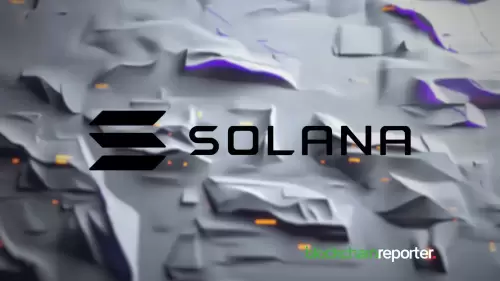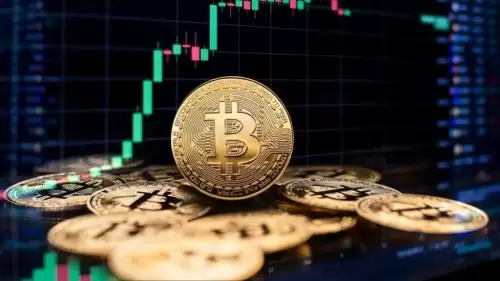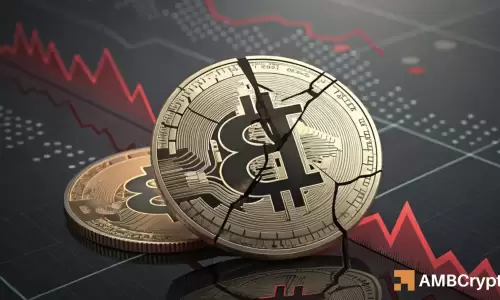 |
|
 |
|
 |
|
 |
|
 |
|
 |
|
 |
|
 |
|
 |
|
 |
|
 |
|
 |
|
 |
|
 |
|
 |
|
加密貨幣新聞文章
Someone Paid a Bitcoin Developer to Eliminate OP_RETURN's Datacarrier Limit
2025/05/07 01:53

According to Samson Mow, someone paid a senior Bitcoin developer to write the year’s most contentious code change request to eliminate OP_RETURN’s datacarrier limit from Bitcoin Core’s default mempool.
Rather than the idea emerging organically from a grassroots discussion among Bitcoin community members, Mow claims that pull request (PR) 32359 was a corporate initiative from the start.
During initial discussions on the Bitcoin-Dev Mailing List and GitHub, Chaincode Labs’ Antoine Poinsot and PR author Peter Todd expressed cultural and technical reasons for removing the “nudge of” OP_RETURN’s datacarrier limitation that had allegedly become “ineffective” at deterring non-financial, on-chain data storage.
Later Bitcoin developers joined in with historical context on spam filters, convinced that the modification request was a genuine request to normalize the placement of non-financial data on Bitcoin blocks across OP_RETURN, witness, and other areas of transactions.
Finally, however, Todd stated his primary motivation for his proposal was an economic one. In a StackerNews response, he stated, “For the record, this wasn’t my idea; I was asked to open it by an active Core dev because entities like Citrea are using unprunable outputs instead of OP_Return, due to the size limits.”
In Mow’s view, this meant that someone at Chaincode, like Poinsot, paid off Todd in a sort of “PR laundering.”
Poinsot responded to the accusation, saying that he personally didn't pay Todd but claimed ignorance about other people at Chaincode. “Did Chaincode pay Peter to open this PR? That sounds pretty surprising to me.”
Poinsot then shot back at Samson, calling him a “desperate attention grabber” who mistakenly thought his followers were “that stupid” to believe the accusation.
A revival of the Bitcoin OP_RETURN coding mashup
For background, this year’s heated disagreement over non-financial data in Bitcoin’s blockchain is a continuation of its late-2010 OP_RETURN coding mashup. In fact, even Satoshi Nakamoto was beginning to comment on arbitrary data publications into Bitcoin’s blockchain.
Conservatively, Satoshi introduced a restriction on transaction types, displaying a preference for keeping the blockchain streamlined and focused on financial transactions. Satoshi implied that projects needing large data storage, like BitDNS/Namecoin, should use a separate blockchain linked into Bitcoin’s proof-of-work rather than embedding all data on its main chain.
Last week, a group of Chaincode and Brink developers attempted to increase OP_RETURN’s datacarrier limit from approximately 80 to hundreds of thousands of bytes for Bitcoin Core’s default mempool.
They maintained the change was trivial, a simple "modernization" for mempool filters that acknowledged the ease of storing non-financial data elsewhere on Bitcoin’s ledger.
Defending the 80-byte filter, a group of independent and Knots node operators stated that the rushed, corporately-influenced proposal would push Bitcoin down a slippery slope of tedious transaction validation and non-financial data storage.
In their view, it was the first of a "thousand cuts" and an obvious sabotage of Bitcoin’s monetary network by "spammers" who are trying to turn it into "just another database."
Is PR 32359 actually going to happen?
Blockstream engineer and Core contributor Greg Sanders stated that Core was planning to include PR 32359 in the next software update.
Updates about the intention of Core maintainers are changing rapidly, and it’s not clear whether the new software version will actually include the OP_RETURN datacarrier modification.
Votes and participation on the GitHub for the PR are closed. Several developers voted for and against the proposal. Bitcoin full nodes running Knots, signaling opposition to the PR, have come online to an all-time high for the year.
GitHub administrators have censored the debate, and #FixTheFilters continues to trend on social media as the discussion persists.
Many critics are blaming Core for catering to corporate interests instead of concentrating on Bitcoin’s development as a non-fiat monetary network.
免責聲明:info@kdj.com
所提供的資訊並非交易建議。 kDJ.com對任何基於本文提供的資訊進行的投資不承擔任何責任。加密貨幣波動性較大,建議您充分研究後謹慎投資!
如果您認為本網站使用的內容侵犯了您的版權,請立即聯絡我們(info@kdj.com),我們將及時刪除。
-

-

-

-

-

-

- UNISWAP價格預測:看漲逆轉在地平線上?
- 2025-08-05 07:10:59
- UNISWAP(UNI)是否準備好看好逆轉?最近的市場分析表明潛在的上升性,但是哪些因素驅動了這種樂觀的前景?
-

- 比特幣,以太坊,Altcoin Rally:這是最大的嗎?
- 2025-08-05 07:01:56
- 加密貨幣市場正在加熱,以太坊領導了這一指控。這是主要的Altcoin集會的開始嗎?讓我們研究最新的趨勢和見解。
-

-

- 比特幣持有人準備在看跌信號的市場出口
- 2025-08-05 07:00:39
- 長期比特幣持有者顯示出市場退出的跡象,作為關鍵指標閃光燈信號,表明儘管價格提高,但仍有可能進行更正。





























































